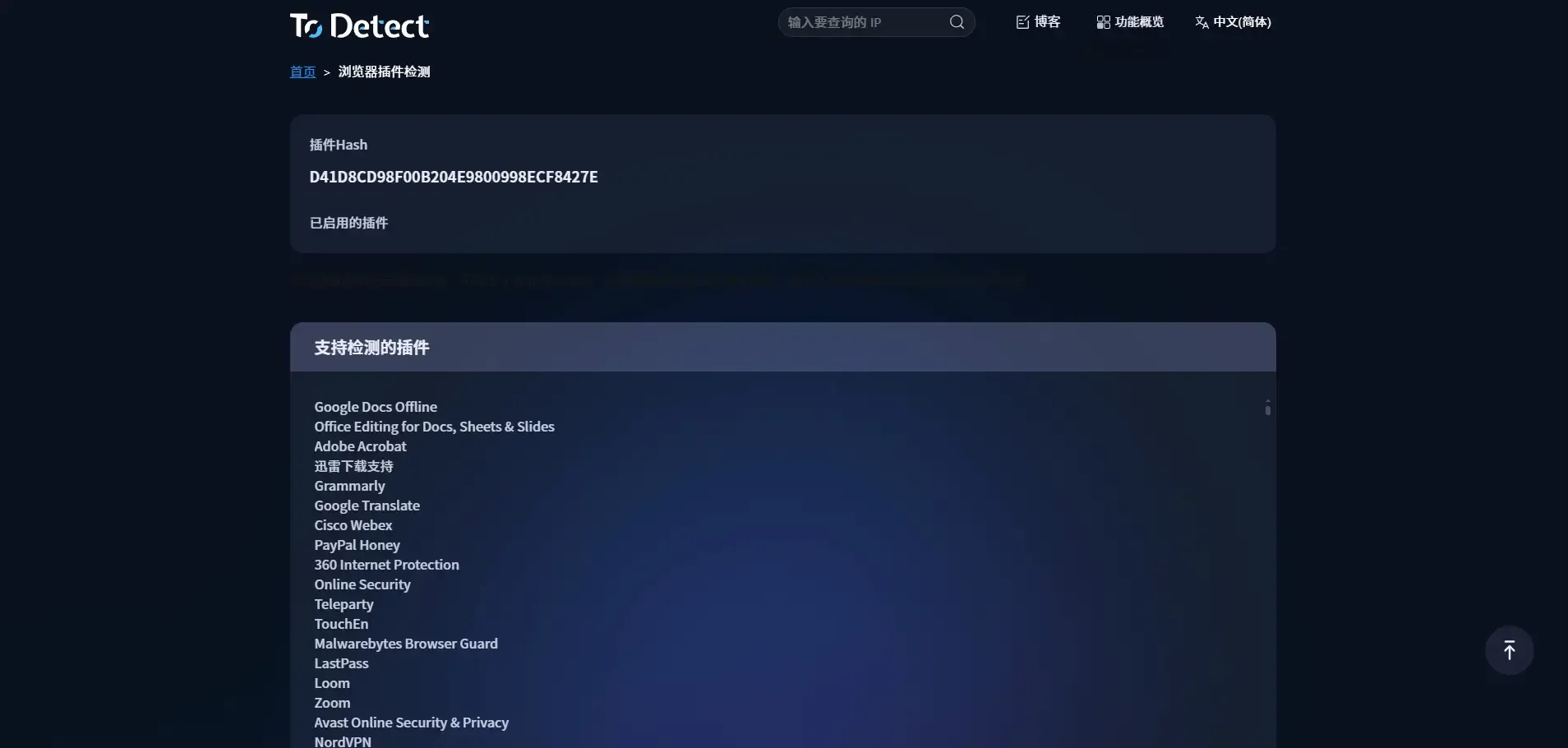During daily browsing, installing too many plugins in your browser may sometimes cause it to lag. To find out exactly which plugins are installed, you would normally need a technician to check, which can be cumbersome. Are there any tools that can detect browser plugins in real-time? This article will explain the methods and techniques from several angles.
What Are Browser Plugins Used For?
Browser plugins (Browser Plugin) are extensions provided by browsers to enhance their capabilities, such as viewing PDFs, blocking ads, managing passwords, and more. Different browsers manage plugins differently.
Chrome and Edge mainly use extensions, which are more secure and have restricted plugin installation information.
Firefox uses the Add-on mechanism and also provides API detection.
Safari and mobile browsers generally restrict plugins, resulting in low installation rates.
Once you understand the purpose and types of plugins, you can choose the appropriate method for detection.
How to Detect Which Plugins Are Installed in Your Browser?
1. Using Browser Plugin Detection Tools
There are many online browser plugin detection tools available, such as ToDetect. You can detect browser plugins online without installation, get details of all installed extensions within 3 seconds, check plugin permissions and security, detect potentially malicious plugins, and protect your browsing safety and privacy!
Advantages: High detection efficiency, no installation required, real-time online monitoring, convenient.

2. Detecting Through Built-in Browser Plugin Management
This is the most direct method but requires some technical knowledge:
Chrome: Enter chrome://extensions/ to view installed extensions.
Firefox: Enter about:addons to view the plugin list.
Edge: Enter edge://extensions/.
Through the management interface, you can confirm whether plugins are installed and enabled. However, this method requires manual operation and cannot automate detection.
3. Detecting Through MIME Types
Some plugins register specific MIME types, and web pages can check them using navigator.mimeTypes. For example, the Flash plugin registers the application/x-shockwave-flash MIME type:
function isMimeTypeInstalled(type) {
return !!navigator.mimeTypes[type];
}
if (isMimeTypeInstalled("application/x-shockwave-flash")) {
console.log("Flash plugin is installed");
}
Similarly, this method is limited for modern browser extensions but can be used for older plugin detection, requiring professional technical knowledge.
Conclusion
If you want to check whether certain plugins are installed in your browser but lack technical knowledge, you can try ToDetect, a professional browser fingerprint detection tool. It supports browser version detection, User-Agent parsing, IP lookup, browser fingerprint detection, device type detection, online detection tools, IP address, DNS leak checks, Canvas fingerprint recognition, WebRTC leak testing, and more.
 AD
AD What Is Browser Plugin Detection and Why Does It Matter?
What Is Browser Plugin Detection and Why Does It Matter? How to Detect Chrome Extensions Installed by Users – Browser Plugin Detection
How to Detect Chrome Extensions Installed by Users – Browser Plugin Detection How to Check if a Browser Has a Specific Plugin Installed?
How to Check if a Browser Has a Specific Plugin Installed? AD
AD How to Use ToDetect to Check Your Browser Fingerprint?
How to Use ToDetect to Check Your Browser Fingerprint? The Ultimate Anti-Linking Tool for Multi-Account Matrix Marketing: Browser Fingerprint Detection
The Ultimate Anti-Linking Tool for Multi-Account Matrix Marketing: Browser Fingerprint Detection One-Click Browser Fingerprint Check! The Ultimate Guide to Preventing Account Linking and Bans on Amazon/eBay Multi-Store Operations
One-Click Browser Fingerprint Check! The Ultimate Guide to Preventing Account Linking and Bans on Amazon/eBay Multi-Store Operations